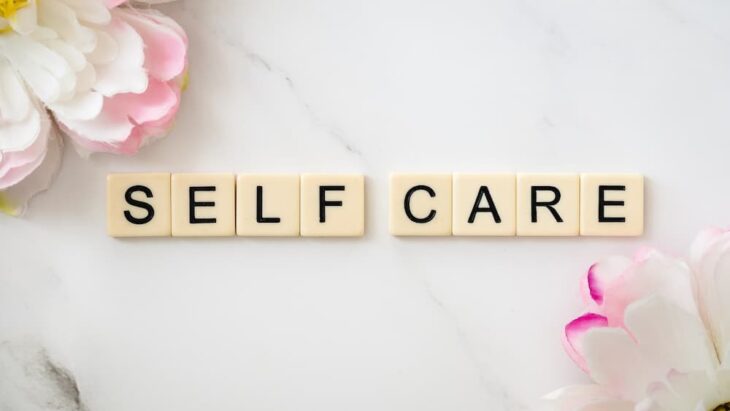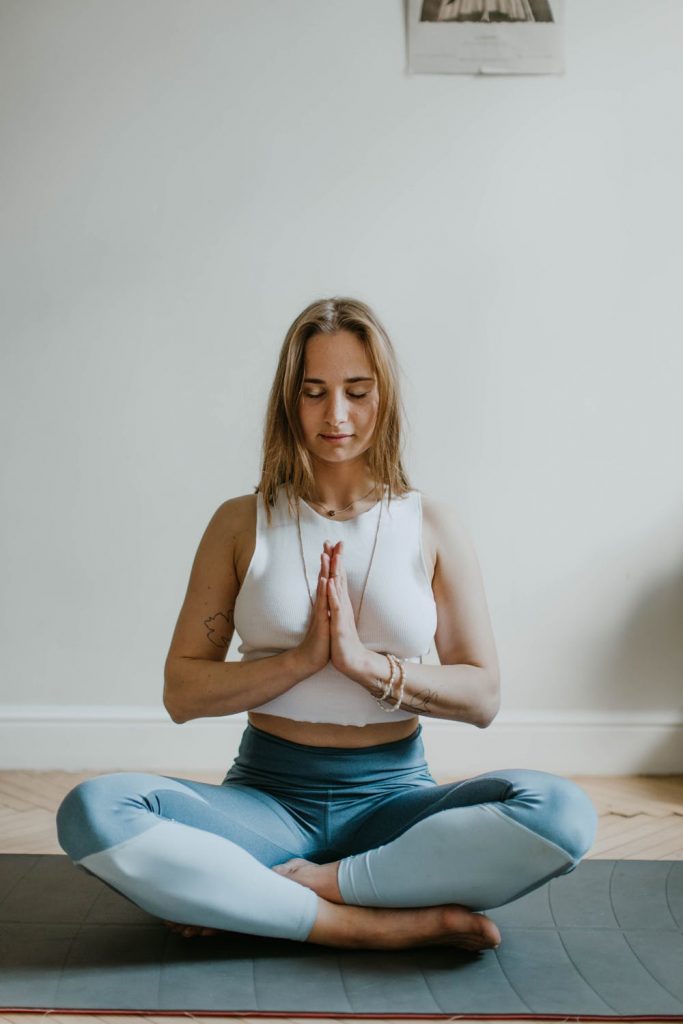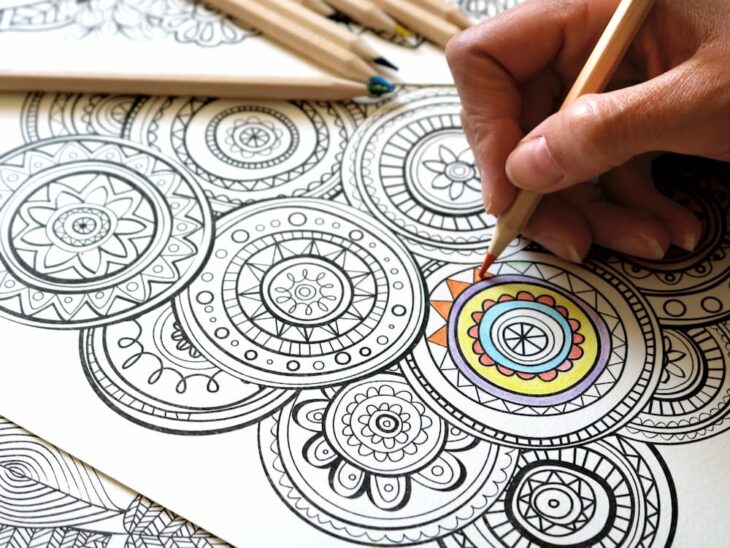Disclosure: Articles may contain affiliate links. As an Amazon Associate, we earn from qualifying purchases (at no additional cost to you). See our full disclosure here.
Last updated on December 27th, 2023 at 09:34 pm
The first person many people neglect when they get busy is themselves. Either they feel like they don’t have time to address their personal needs, or they think they have to stay busy to achieve their goals and tackle their responsibilities.
Both couldn’t be further from the truth. Self-care is crucial.

Why You Should Add Mindful Self-Care to Your Daily Routine
Self-Care Rejuvenates You
It’s difficult to get anything done when you’re burnt out. When you can’t focus or concentrate. When you don’t have the emotional or mental capacity to cope with stress and move through turbulence.
Likewise, when you take care of yourself, your mental health improves. Anxiety and depression symptoms subside. In addition, how you feel about your life and self gets better, strengthening your emotional house.
Self-care is critical because it helps you improve the relationship you have with yourself. You’re more authentic and purposeful. And you know what you need to be at your best and can provide it.

Types of Self-Care to Consider
There are six common types of self-care to consider:
- Physical self-care: activities you to do better your physical health
- Mental self-care: any action that nurtures mental health
- Emotional self-care: acts that help you acknowledge, process, and reflect on your emotions
- Social self-care: tasks that assist you in developing genuine relationships with people
- Practical self-care: acts you do to ensure basic needs are met and avoid stressful situations in the future
- Spiritual self-care: activities that nurture your spirit and inspire you to think of the bigger picture
You’ll work on one or a combination of these daily. You can put mindfulness at the foundation of each too.
How to Create Mindful Self-Care Habits No Matter the Type You’re Pursuing
Mindful.org defines mindfulness as “the basic human ability to be fully present, aware of where we are and what we’re doing, and not overly reactive or overwhelmed by what’s going on around us.” You’re present in what you’re experiencing without trying to alter it in any way.
So, mindful self-care is being aware of your internal needs and honoring them by engaging in intentional practices that address them. You’re fully present in protecting your well-being.
The mindful self-care you incorporate into your daily routine will be unique to you. But there are general practices you can adopt to keep mindfulness at the core of your self-care no matter the type you’re pursuing.
Define why you want to implement mindful self-care
Defining how you’ll implement mindful self-care into your daily routine is the easy part. Sticking with it is where the challenge lies. You’ll be more inclined to stick with mindful self-care habits long-term if you have a strong “why” behind your implementation.
Sit down and think about why you want to implement mindful self-care into each day. What would it do for you physically, mentally, and emotionally? How would it impact your external circumstances? What about your internal dialogue? What does the version of you that practices mindful self-care look like and why is it crucial for you to become this person?
Have a meaningful “why” for implementing mindful self-care, and you’ll be much more dedicated to sticking with your habits.
Focus on accessible forms of self-care
When you hear mindful self-care, you might think it requires more than what it really does to practice it effectively. In fact, it’s easy to practice mindful self-care when you focus on accessible forms of self-care.
Accessible forms of self-care are budget-friendly and simple. For instance, drinking more water every day is an accessible form of self-care. Consistent hydration prevents constipation, regulates your body’s temperature, and keeps joints and tissues lubricated.
Simple actions like keeping a water bottle with you and setting reminders will help you drink more water and access the benefits above.
Other examples of accessible self-care include:
- Getting enough sleep each night
- Maintaining positive relationships
- Adhering to a hygiene routine
- Incorporating more exercise into each day
- Taking advantage of preventative care services
- Taking up a relaxing hobby, such as coloring
- Practicing meditation
Mindfulness in and of itself is an accessible form of self-care too. So, you can partake in mindfulness activities as well as you’re present in the way you take care of yourself to ensure mindfulness is at the foundation of your self-care habits.

Reward yourself for doing it
Aside from having a strong “why” behind implementing mindful self-care, rewarding yourself every time you complete a mindful self-care activity can keep you committed long-term.
It’s hard to fit self-care into your daily routine, let alone convince yourself that it’s essential and that you deserve it. So, getting past these roadblocks is a cause for celebration. Give yourself a treat after every self-care activity.
This could look like:
- Giving yourself additional time for mindful self-care
- Taking yourself out to your favorite restaurant
- Making time for a social event
- Making your favorite dessert
- Buying yourself a small, inexpensive gift
Implementing mindful self-care into each day is much more enticing when a reward is waiting for you.
Incorporating self-care into your daily routine with a focus on mindfulness doesn’t have to be complicated. Define why you want to implement mindful self-care, focus on accessible forms of self-care, and reward yourself when you do them to ensure your habits stick long-term.
Also read:
Free Self-Care Checklist Printable (20 Ideas You Can Start Now)
Why You Should Simplify Your Life and Tips for Making it Happen
Managing Stress as a Busy Mom — A Few Tips
You can find MomsWhoSave on Facebook, Instagram, Pinterest, and Twitter. Join us for updates!

Leave a Reply